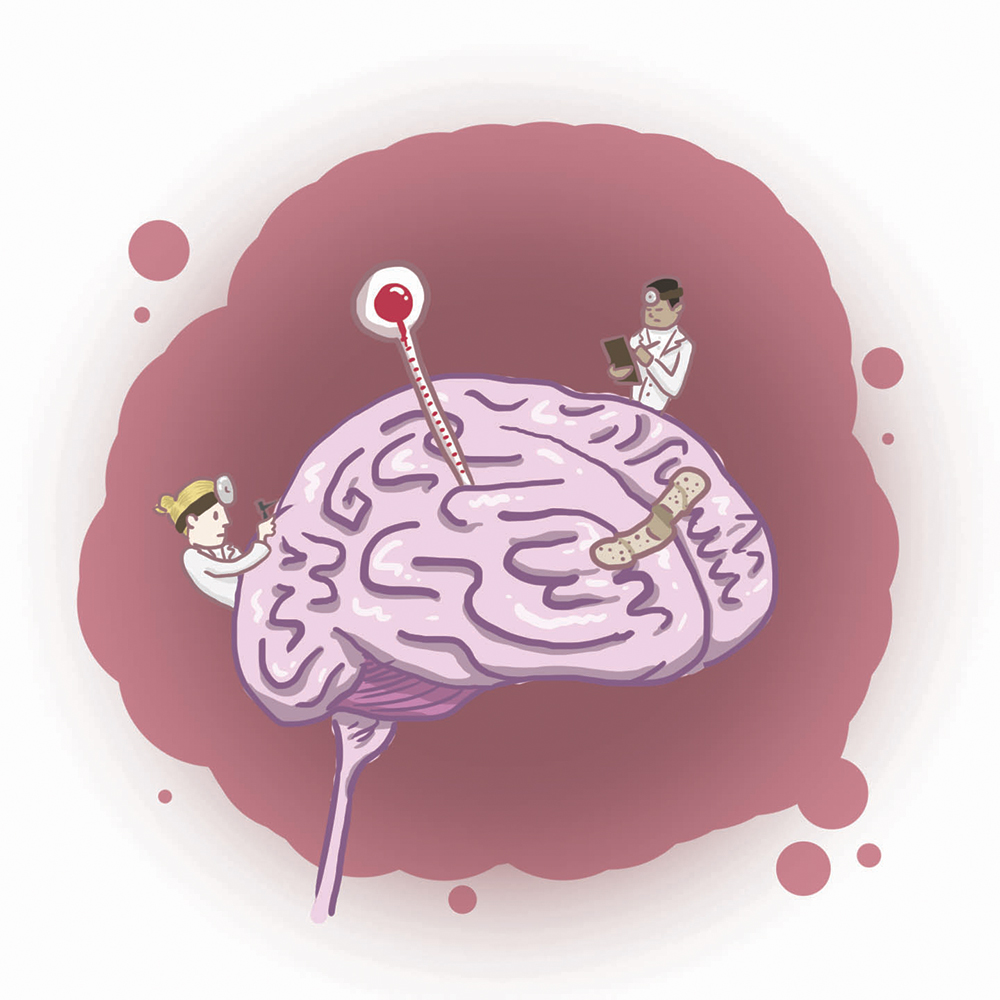When waking up with a runny nose, we know when to stay in bed, but with the signs of common mental illnesses, this is not the case. If we as humans are not just a body, then health does not only include bodily health either. Human health is complex and multi-faceted, even when we only consider physical health.
A Spiritual Component
The World Health Organization considers health as a state of complete physical, mental and social well-being and not merely the absence of disease or infirmity. At Biola, we might say health even has a spiritual component. And just as few people would reject humans are mind and spirit, few would also reject that health includes the mental and the spiritual.
But we do not treat these three parts in the same way. We go to the doctor for check-ups or we know when to go to a doctor if something is wrong. For minor bumps and bruises, we have medicine on hand.
We know we can go to a pastor for spiritual advice, we know the importance of prayer, fellowship and Bible-reading to spiritual life. But although we may accept mental health as an integral part of human health, we do not have this same awareness or preparedness for signs of problems.
Waiting is devastating
This should come as a surprise to us considering that one in five American adults experience mental illness in a given year according to the National Alliance on Mental Illness. And although there is effective treatment available for chronic illnesses, many people have long delays before seeking treatment, even waiting decades after the first symptoms occur. The effects of this delayed or complete lack of treatment are devastating on both individual persons and society as a whole.
People with serious mental illnesses have an increased risk of other chronic medical conditions. NAMI states that more than 90 percent of children who die by suicide have a mental health condition. Although military members comprise less than one percent of the U.S. population, veterans represent 20 percent of suicides nationally.
Symptoms of mental health problems are not as clear as those of other common health problems like the cold, and they are therefore trickier to detect. They do not arrive overnight, but rather manifest in behavioral changes over several weeks.
Need for awareness
But in order to prevent cases of unchecked illness or problems, we need to make ourselves aware of the common symptoms, ways to self-care and when to seek a professional. The American Psychiatric Foundation notes some common signs are noticeable changes in sleeping or eating habits, prolonged sadness or irritability, frequent outbursts of anger, persistent nightmares, among other symptoms. Some ways to improve your own mental health are eating well, being physically active and connecting with and helping others.
If you or someone you know is in a crisis situation, definitely seek the help of a mental health professional or hotline; but just as people do not need to be on the verge of death to see a doctor, you do not have to be in crisis to see a professional. They can help you solve problems, build confidence, help you figure out your goals and provide a listening ear.
Hopefully, through greater awareness of these symptoms and solutions just as our awareness of physical symptoms and solutions, fewer people will be left without care.







